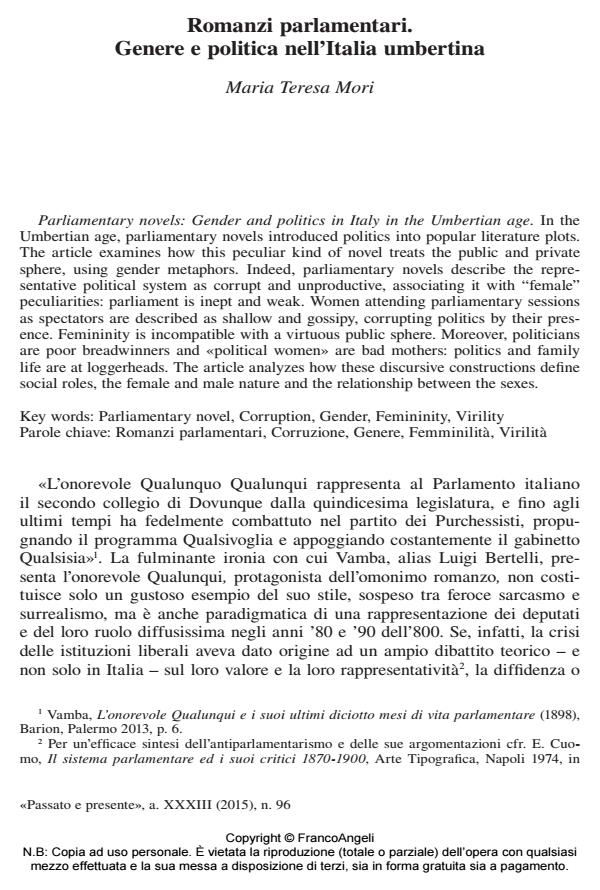Parliamentary novels: Gender and politics in Italy in the Umbertian age
Journal title PASSATO E PRESENTE
Author/s Maria Teresa Mori
Publishing Year 2015 Issue 2015/96
Language Italian Pages 24 P. 62-85 File size 188 KB
DOI 10.3280/PASS2015-096004
DOI is like a bar code for intellectual property: to have more infomation
click here
Below, you can see the article first page
If you want to buy this article in PDF format, you can do it, following the instructions to buy download credits

FrancoAngeli is member of Publishers International Linking Association, Inc (PILA), a not-for-profit association which run the CrossRef service enabling links to and from online scholarly content.
In the Umbertian age, parliamentary novels introduced politics into popular literature plots. The article examines how this peculiar kind of novel treats the public and private sphere, using gender metaphors. Indeed, parliamentary novels describe the representative political system as corrupt and unproductive, associating it with "female" peculiarities: parliament is inept and weak. Women attending parliamentary sessions as spectators are described as shallow and gossipy, corrupting politics by their presence. Femininity is incompatible with a virtuous public sphere. Moreover, politicians are poor breadwinners and «political women» are bad mothers: politics and family life are at loggerheads. The article analyzes how these discursive constructions define social roles, the female and male nature and the relationship between the sexes.
Keywords: Parliamentary novel, Corruption, Gender, Femininity, Virility
- Contagious fears. The invasion scare in liberal Italy (1872–1901) Francesco Casales, in Journal of Modern Italian Studies /2025 pp.1
DOI: 10.1080/1354571X.2025.2567112
Maria Teresa Mori, Romanzi parlamentari. Genere e politica nell’Italia umbertina in "PASSATO E PRESENTE" 96/2015, pp 62-85, DOI: 10.3280/PASS2015-096004